- myFICO® Forums
- Bouncing Back from Credit Problems
- Rebuilding Your Credit
- Attempting major rebuild - GOAL: mortgage end of 2...
- Subscribe to RSS Feed
- Mark Topic as New
- Mark Topic as Read
- Float this Topic for Current User
- Bookmark
- Subscribe
- Mute
- Printer Friendly Page
Attempting major rebuild - GOAL: mortgage end of 2020 -GUIDANCE PLEASE
Is your credit card giving you the perks you want?
Browse credit cards from a variety of issuers to see if there's a better card for you.
- Mark as New
- Bookmark
- Subscribe
- Mute
- Subscribe to RSS Feed
- Permalink
- Report Inappropriate Content
Attempting major rebuild - GOAL: mortgage end of 2020 -GUIDANCE PLEASE
•I have a Capital One Auto Loan that is showing as closed/CO. The amount owed is $5,175 from an original loan of $15,195. If I pay this off will they delete it? Is that the best option? The DOFD is 10/1/14. Should I try to settle instead of PIF or is that worse for my score ?
•I have 3 accounts in collections currently, though only one is reporting on Equifax.
-Choice Recovery $353 (old dental bill)
DOFD 8/7/14, on record till 5/2021
-Enhanced Recovery $677 (ATT cancel fee)
On record till Dec 2020
-MBA LAW OFFICES/CAPIO $200 (hospital ER copayment)
On record until 12/2022
———-QUESTIONS———
Better to PIF? Settle? Should I ask them to PFD? Best option for biggest score boost?
None of them will drop off before we want to apply for a mortgage, in September/August 2020
•I was just approved for a Capital One Platinum card with a $300 CL. It is the only CC I have. Should I wait until I clear my items in collections and have a few months of good payment history on this CC before trying for another unsecured card OR should I try for 1-2 secured cards now and build up good payment history over next 4-6 months with all to be able to try and upgrade to unsecured in a few months instead? I don’t want to “start/open” any new lines of credit too close to when we are looking to buy a house as I have read that it isn’t good.
•I don’t have any installment loans or revolving lines of credit. We have one car and it’s in my husbands name. If I can get my score up enough by December January, is it a good or bad idea to attempt to get a car loan? We do need a second car eventually, but I’m looking at it more in a benefiting my score kinda way. That would give me 6 or so months to have good on time payments before we apply for a mortgage. Or is that too close to attempting for a mortgage? I know they look at the age of credit too and I don’t want to hurt us. We can wait until right after we buy a house to get a second car - I am just wondering if having even a newer one of that type of credit line reporting is better than not having one at all.
I haven’t checked my scores other than on Credit Karma which says: TU 538 EQ 603 though I know those aren’t 100% accurate.
And I just signed up for Experian boost which said it brought me from 550 up to a 612.
Also, my new CC hasn’t reported yet so it still shows I have zero credit utilization- because there are no accounts to utilize. Will that initially hurt me before it helps me? Should I use it before it reports? Should I report any kind of balance on it or keep it at $0.
• I had student loans that originated with Sallie Mae years ago. The loan was turned over to Ed financial and I was making payments on it that way but then defaulted. Finally the loans were turned over to the US Department of education and I was making payments on them for a while as well until I stopped. Over the last two years our tax returns were docked for the full amount of student loans that I owed. I have now fully paid them off but all 3 places that held my loan are still on my report as 8 different closed accounts between them. Can I get them removed? Would that help?
Any other suggestions to help?
- Mark as New
- Bookmark
- Subscribe
- Mute
- Subscribe to RSS Feed
- Permalink
- Report Inappropriate Content
Re: Attempting major rebuild - GOAL: mortgage end of 2020 -GUIDANCE PLEASE
I don't know anything specifically about student loans or medical collections, or about your specific creditors.
Some general comments based on what I have experienced over the past few months.
- A paid-off charge-off or collection is a lot better than an unpaid one; however, you also lose leverage to request Pay For Delete after you pay. Removing it completely from your report is a lot better than leaving it on, even paid.
- The ways to remove items are, in no particular order, 1) wait for it to age off, 2) talk to them and get them to agree to PFD, 3) pay it and then attempt to get it removed via goodwill letters, 4) successfully dispute it. Choose your favorite method or methods and pursue them aggressively.
- You didn't say if your Cap 1 card is secured or not. If so, be aware that Cap 1 secured cards will never unsecure. The best widely available secured card is Discover. Others I'd consider are TD Bank if you live in an area with branches, local credit unions, and Citi. If you shop much at Amazon, I'd also look into the Amazon Store Card. Conventional wisdom is that three revolvers give you a bonus when building/rebuilding.
- I'd also consider Self Lender. It shows up as a secured installment loan, similar to a car payment.
I think a mortgage late next year is most likely feasible but a GOOD mortgage by then may be optimistic.
CK's scoring is accurate when taken for what it is, it's just a different score than most lenders use. So, it is inaccurate if used as a proxy for FICO scores. Consider Experian or this site for FICO scores. CK is good for seeing when changes reach your accounts.
Congratulations on starting (the hardest part) and good luck!



FICO Resilience Index: 64. Cards: 5/24, 2/12, 2/6. Accounts including loans: 8/24, 4/12, 3/6. Card CLs total $213,900, or $240,400 including the AU card. Cards (oldest to newest)


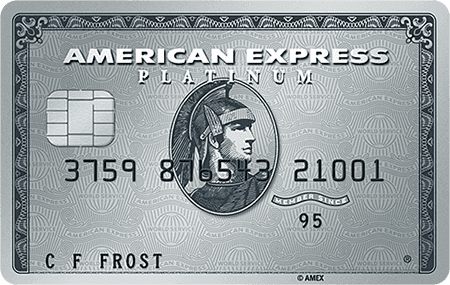
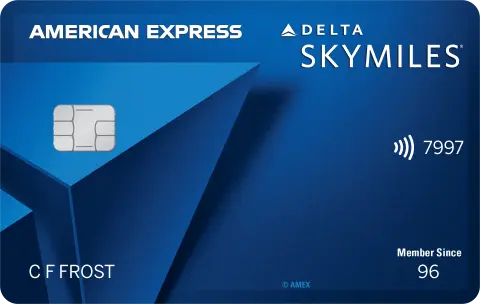
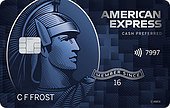

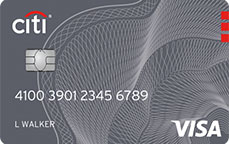





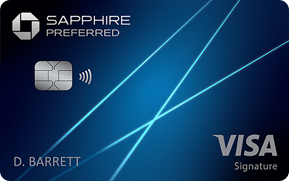
Authorized user / Corporate / Auto loans / Personal loan
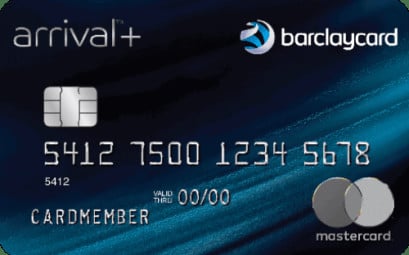




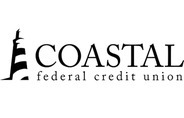
- Mark as New
- Bookmark
- Subscribe
- Mute
- Subscribe to RSS Feed
- Permalink
- Report Inappropriate Content
Re: Attempting major rebuild - GOAL: mortgage end of 2020 -GUIDANCE PLEASE
Capital one will not PFD and since your looking into getting a home settling may not look good to your lender but I don’t know for sure because it is dependent on the lender.



 Starting Score: 494 503 521
Starting Score: 494 503 521Current Score: 503 507 507 2/19
Goal Score: 680
Take the myFICO Fitness Challenge


Goals:
Get First Home in Summer 2025
- Mark as New
- Bookmark
- Subscribe
- Mute
- Subscribe to RSS Feed
- Permalink
- Report Inappropriate Content
Re: Attempting major rebuild - GOAL: mortgage end of 2020 -GUIDANCE PLEASE
- Mark as New
- Bookmark
- Subscribe
- Mute
- Subscribe to RSS Feed
- Permalink
- Report Inappropriate Content
Re: Attempting major rebuild - GOAL: mortgage end of 2020 -GUIDANCE PLEASE
Discover considers you for unsecured after the 7th statement. The reason I say they're the best widely available secured card is that they give 1% cash back on all purchases, and match it dollar for dollar after 12 months, meaning it's ultimately 2% cash back. Also, you can add to your initial deposit (and therefore, credit limit) by calling after your first statement cuts. They have a good site and app.
Citi says they will unsecure you after 18 months, but anecdotally, it can be as early as 11 months or as late as 2.5 years. You cannot increase your deposit/credit limit after initial setup. They have a good site and app.
Amazon Store Card will consider you for unsecured, and if you don't qualify, will consider you for secured. The secured card can graduate to unsecured. If you have Amazon Prime, either card gives you 5% cash back on all Amazon purchases.
TD Bank's unsecured card is a 3-2-1 rewards card that can graduate after 7 statements to the unsecured version of their 3-2-1 card. But, to open it, you need to visit a branch and create a savings account as collateral.
My opinion: I'd go ahead and open all of your starter stuff now, so it ages together. I am assuming you aren't planning to apply for anything that's difficult to get in the next two or three months. I should note that opinions vary, and many will suggest spacing out applications to avoid triggering "credit-seeking behavior". It's hard to say what's the right choice because it depends a lot on each person's goals, but I'd rather get the pain out of the way now and let stuff age going into next year.
Good luck!



FICO Resilience Index: 64. Cards: 5/24, 2/12, 2/6. Accounts including loans: 8/24, 4/12, 3/6. Card CLs total $213,900, or $240,400 including the AU card. Cards (oldest to newest)













Authorized user / Corporate / Auto loans / Personal loan






- Mark as New
- Bookmark
- Subscribe
- Mute
- Subscribe to RSS Feed
- Permalink
- Report Inappropriate Content
Re: Attempting major rebuild - GOAL: mortgage end of 2020 -GUIDANCE PLEASE
@Anonymous wrote:
• I had student loans that originated with Sallie Mae years ago. The loan was turned over to Ed financial and I was making payments on it that way but then defaulted. Finally the loans were turned over to the US Department of education and I was making payments on them for a while as well until I stopped. Over the last two years our tax returns were docked for the full amount of student loans that I owed. I have now fully paid them off but all 3 places that held my loan are still on my report as 8 different closed accounts between them. Can I get them removed? Would that help?
Any other suggestions to help?
It will be exceedingly difficult to get the student loan defaults/lates/accounts removed as servicers are required by law to report information. The good news is that since they are paid, you might have a slightly better chance at getting them removed, but it's still not likely. You would need to try to goodwill them (and maybe goodwill saturation technique after you get your first rounds of "sorry, but we legally can't" responses).
- Mark as New
- Bookmark
- Subscribe
- Mute
- Subscribe to RSS Feed
- Permalink
- Report Inappropriate Content